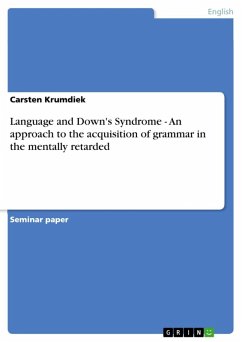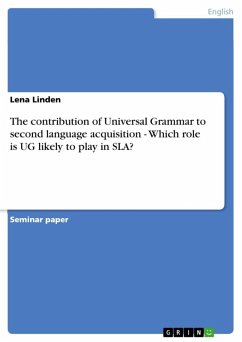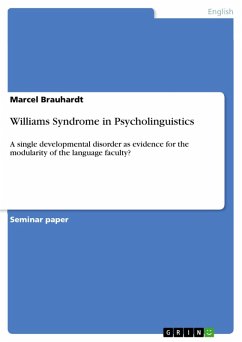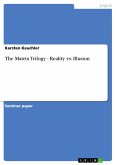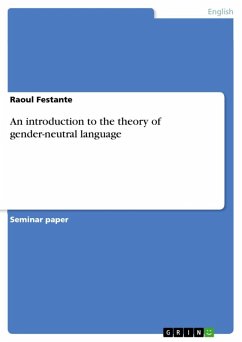Seminar paper from the year 2007 in the subject English Language and Literature Studies - Linguistics, grade: 1,3, University of Cologne, course: First Language Acquisition, language: English, abstract: The acquisition of language has been a field of study rather new to research, emerging only in the middle of the last century. Among scholars it has been of great interest how people acquire their first language and there have been a great number of controversies what some of the suggested hypotheses are concerned. Another fairly interesting issue, as opposed to normal language acquisition, is the study of people who acquire language even though they are faced with quite particular learning conditions. These people, precisely those who suffer from mental retardation, usually do acquire language; however, this language seems to diverge from the one acquired by typically developing individuals. The present paper will discuss the linguistic problems of individuals with Down syndrome (DS), a genetic disorder, occurring in groups of any social or educational level. It is considered to be the "most common cause of moderate to severe learning disability in childhood". Approximately one in 700-900 babies is born with Trisomy 21 by mothers of any age. The study of Down syndrome children in particular, offers several advantages. Due to their physiognomy, subjects with Down syndrome are fairly easy to identify. In addition, language impairment in DS individuals represents a very prominent feature of this group. In this paper, a brief overview on some of the keyfacts shall be given first of all in order to understand the general problems typical of this genetic disorder. Second, the difficulties in speech production will be discussed in relation to physiological and cognitive consequences. The last chapter will deal with the acquisition of morphosyntax in DS individuals as opposed to the grammar in typically developing subjects and will, additionally, consider one particular approach as an account for the apparent differences - the Critical Period Hypothesis.
Dieser Download kann aus rechtlichen Gründen nur mit Rechnungsadresse in A, B, BG, CY, CZ, D, DK, EW, E, FIN, F, GR, HR, H, IRL, I, LT, L, LR, M, NL, PL, P, R, S, SLO, SK ausgeliefert werden.

